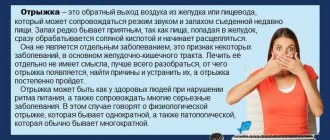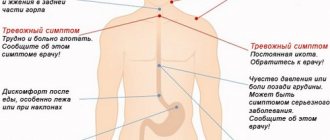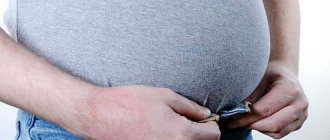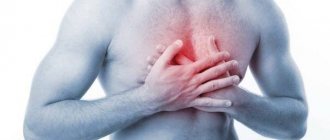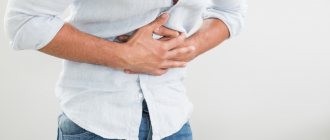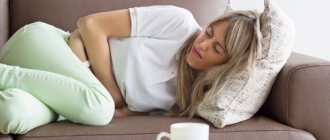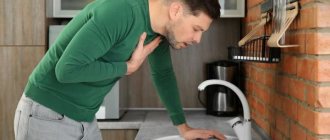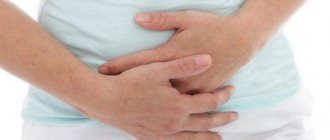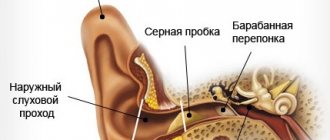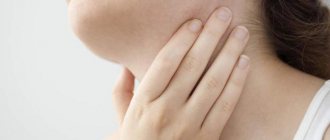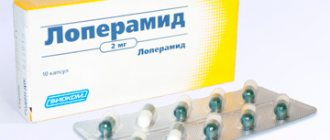Causes of pain and burning in the anus
Itching in the anus, pinching, burning, tingling and other troubles can be for various reasons. Conventionally, they can be divided into two parts: external and internal. Let us consider in detail all possible factors.
External
The skin around the anus is thin and sensitive. It easily becomes inflamed from certain external influences.
Irritation on the butt and burning appear for the following reasons:
- Excessive hygiene and cleanliness are good. But some people overdo it when it comes to taking care of their bodies. If you repeatedly use soap and antibacterial wipes in the anal area during the day, you can wash the entire protective layer on the epidermis. Dryness will appear, the skin will become inflamed, and will sting and burn with each bowel movement.
- Lack of hygiene. There is also a downside to self-care - violating the norms of body cleanliness. Lack of a daily shower, insufficient cleansing of the anus during bowel movements, dirty underwear, wearing synthetic low-quality underwear - all this leads to the proliferation of pathogenic bacteria in the anal area, which violate the integrity of the skin and provoke a burning sensation.
- Rough toilet paper. Using hard toilet paper can significantly damage areas with delicate and sensitive skin. Such paper scratches the butt, bacteria penetrate the wounds, and the inflammatory process begins.
- Allergy. Many women, and some men, like to use cosmetics in sensitive areas. Such products can easily cause allergic reactions: itching, red spots, irritation, burning, dry skin.
- Nutritional features. Hot, spicy foods and strong alcohol consumption cause irritation of the stomach, intestines and anus.
- Shaving intimate areas. There is hair not only on the pubis, but also in the intergluteal space. When shaving, delicate skin can be easily scratched. Microtraumas cause discomfort every time you visit the toilet until they heal.
Domestic
Pain after defecation, burning, pinching and other unpleasant symptoms in the anus can be caused by diseases, disorders in the body and other internal factors.
Possible pathologies causing burning and pain in the anus:
- Haemorrhoids . A fairly common cause of itching and burning in the anus. Hemorrhoids (varicose veins in the rectum) often occur in women after childbirth. The disease also appears from a sedentary lifestyle. In addition to discomfort, after going to the toilet you can notice red blood in the stool. The disease is treatable, and the sooner action is taken, the better.
- Anal fissures . Some intestinal diseases lead to fissures in the anus. Usually the fissure bleeds, during stool there is a strong burning sensation, pain, and stinging. Constipation and hard stool can compromise the integrity of the rectum. The wound causes burning and pain during defecation. Timely treatment and diet will help to completely get rid of the problem.
- Dysbacteriosis, diarrhea. Loose stools have an increased content of gastric juice. It is very caustic and irritates the anus during bowel movements. A person may experience a very strong, barely bearable pinching or burning sensation. When stool is restored, the irritated tissues of the anus return to normal.
- Diseases of the genitourinary area . Any infectious diseases of the genital organs can cause pain, cramps and other symptoms in the anus. Harmful microorganisms enter the rectal area, which leads to inflammation and burning. The discomfort goes away after the disease is cured.
- Intestinal parasites . Worms live in the intestines. With active reproduction, they can accumulate in the rectum and sphincter. A person feels their presence in the form of severe itching and burning. In adults, worms are much less common than in children.
- Inflammatory diseases of a non-infectious nature. Some diseases of the stomach, liver, and gall bladder disrupt the intestinal microflora. Gastric juice and increased bile content accumulate in the stool, which leads to irritation of sensitive areas.
- Dermatological diseases . Genital herpes, lichen, infectious dermatitis - these diseases can be sexually transmitted and are localized in the area of intimate organs and the intergluteal space. Any dermatitis causes burning and pinching in sensitive areas.
- Neoplasms . Tumors in the rectum, benign and malignant, can cause unpleasant symptoms during bowel movements and even during rest.
A burning sensation in the anus sometimes appears from antibiotics, diabetes, or pancreatitis. Rarely, the causes lie in neuropsychiatric diseases (obsessive states, hypochondria). These are just the most common factors that cause discomfort in the anus.
One of the main causes of constipation and diarrhea is the use of various medications.
.
To improve bowel function after taking medications, you need to drink a simple remedy
.
Diagnosis and treatment
If other unpleasant symptoms appear along with diarrhea, it is important to get examined. These areas hurt many people, and after the cause of the disease was precisely established, it became clear what to do in this case.
Treatment is determined based on the causes of the pathology. If the disease is caused by a parasitic disease, local treatment will not be enough. The same is true for internal diseases of the gastrointestinal tract.
The table shows some of the causes of itching and burning and methods for resolving the problem.
| Cause | Suitable treatment |
| Haemorrhoids | Venotonics are taken to normalize blood circulation. To relieve local irritation, use heparin ointment, Troxevasin, and Relief gel. |
| Helminths | In addition to oral administration of drugs, Pirantel ointment is used. This product is a local anthelmintic |
| Stress instability | Prescribe sedatives, preferably homeopathic. Apply topical moisturizers to relieve irritation |
When burning, it is very important to strictly observe personal hygiene. When choosing products for washing the skin in the intimate area, it is important to take into account individual characteristics and the risk of developing an allergic reaction. It is important to delve into not only how to eliminate diarrhea, but also how to normalize the condition of the skin after defecation.
https://youtu.be/az6uT7OTupg
Traditional methods of treatment
Traditional medicine recipes will only help with some ailments that cause pain and burning in the anus. Do not indulge in self-medication for serious illnesses. Such methods can be auxiliary, but not the main ones.
For hemorrhoids
Wormwood tincture helps get rid of hemorrhoids. Two tbsp. l. dry herbs pour 150 ml. alcohol (40%), infuse for three weeks and then take 15 drops three times a day before meals, dissolving them in a small amount of water. Treatment period is 3 weeks. After just a week, the burning sensation noticeably decreases.
A cold herbal bath will help quickly relieve pain and burning after defecation. You should prepare a decoction of chamomile or calendula in advance and keep it in the refrigerator.
Fill a basin with cool water, pour the broth into it and take a bath for 15 minutes.
For anal fissure
A very effective way to get rid of an anal fissure: juice is squeezed out of aloe leaves and frozen in suppository forms. After defecation, the anus is washed and an “ice suppository” is inserted. Cold quickly relieves pain and burning, and aloe juice heals the wound.
Homemade candles can be made from Kalanchoe juice.
One of the main causes of constipation or diarrhea is poor diet.
.
Therefore, to improve bowel function, you need to drink a simple drink
.
Diagnostic measures
If you notice symptoms such as itching, pain and burning in the anal area, you should consult a proctologist. After collecting complaints, anamnesis and examination, the doctor prescribes a series of studies to identify the cause of the disease. The main diagnostic measures are:
- general blood test, urine test;
- determination of blood sugar levels, if necessary, a glucose tolerance test is performed;
- blood chemistry;
- coprogram;
- analysis of stool for worm eggs;
- sowing stool for flora;
- colonoscopy;
- sigmoidoscopy;
- Ultrasound of the abdominal organs.
Drug treatment
Self-administration of medications is possible only in extreme cases, the discomfort is unbearable, and for some reason it is impossible to see a doctor for the next few days.
There are various ointments that will help quickly relieve pain, burning, and itching in the anus.
| Healing ointments | Antipruritic | Anti-inflammatory |
| Bepanten | Fenistil | Levomekol |
| D-panthenol | Nezulin | Argosulfan |
| Solcoseryl | Skin cap | Eplan |
| Radevit | Advantan | Sintomycin |
Photo:
External use of medicinal products relieves symptoms, but may not eliminate the true causes of the disease.
Frequently asked questions and their answers
Take a shower and treat the sphincter with any cosmetic oil. Usually, irritation and burning of the rectum from spicy food goes away quickly and does not require any treatment.
Loose stools contain a lot of gastric juice. It irritates the walls of the anus and causes unpleasant symptoms. When stool is restored, discomfort and burning disappear.
Similar to symptoms of an infectious disease. You need to urgently go to the hospital and get tested.
Prostatitis causes tissue swelling, which puts pressure on the rectum. Unpleasant sensations in the anus during defecation may well be a consequence of prostatitis.
Irritation of the epidermis could be caused by intestinal bacteria. Bepanten ointment, Solcoseryl or string oil will help to quickly relieve redness, burning and itching.
The symptoms are similar to hemorrhoids, check with a proctologist.
During collection, the stool hardens and during defecation can disrupt the integrity of the rectal mucosa; blood flows from the cracks formed. Apply healing ointment to the back hole; if blood and pain persist for more than 5 days, go to the doctor.
Gastric juice has caused severe irritation of the rectum, use healing ointment or suppositories, the symptom will go away in 2-3 days.
Haemorrhoids
Damage or prolapse of hemorrhoids is often called in one word - hemorrhoids. It often results in severe cutting and burning pain inside the rectum after bowel movement.
Hemorrhoids can be internal or external. The first occurs due to pinched nodes or their damage; the discomfort has a long-term aching character. External hemorrhoids occur due to the prolapse of the hemorrhoid, the pain after defecation is sharp and sharp.
Hemorrhoids can become pinched or fall out of the rectum due to excessive physical exertion, disorders in the body's lymphatic system, or stress. External hemorrhoids can be easily seen; they are a small seal near the anus of a dark blue or purple color (due to a thick network of blood).
Under no circumstances should you treat hemorrhoids on your own, as this can only worsen the situation. It is necessary to contact a proctologist who will palpate and set the hemorrhoid in place. After this, hemorrhoids go away after a few weeks, during which it is necessary to follow the doctor’s recommendations (most often certain procedures and medications are prescribed, for example, suppositories).
What causes spasms
There are many factors that can cause pain in the anus. First, it’s worth understanding what constipation happens and why it occurs.
- Alimentary constipation develops due to lack of fluid. Then abdominal pain appears, and it becomes difficult to empty the intestines. My side also hurts;
- Hypokinetic. For those who spend a lot of time sitting. Occurs in people who are bedridden for various reasons;
- Reflex. Digestive problems affect. The most common type;
- Toxic. Occurs after intoxication and after long-term use of antibiotics;
- Endocrine. Appears against the background of a malfunction of the thyroid gland;
- Mechanical. This type of constipation involves swelling or scarring in the large intestine.
Listed above are the main culprits of constipation and pain that occurs due to difficulties with bowel movements. In addition, an unpleasant condition can provoke nervousness.
Type of pain
With constipation, a person feels a dull and throbbing pain. It becomes more intense if you push. Toxins accumulate in the intestines, from there they enter the blood vessels, and then into the brain. Receptors are affected and pain occurs. To normalize the condition, painkillers sometimes do not help. You need to reconsider your diet, supplement the menu with foods high in fiber. Enemas are recommended to cleanse the intestines.
Pain due to constipation is observed with low intestinal activity and zero gas discharge. Such spasms are strong and stabbing. They can also appear in pregnant women. This is dangerous, since tense abdominal muscles can cause miscarriage or the development of hemorrhoids.
Also, stagnation in the intestines can aggravate an already bad condition with colitis and fissures. To prevent this, you need to change your diet - more fruits, water.
The most negative and painful complication of constipation is hemorrhoids. If it becomes chronic, pain in the anus will become constant. In this situation, spasms in the anus can only be eliminated with an integrated approach.
Fighting painful constipation
To get rid of constipation, any person needs to improve their bowel function. The main driver of positive results is water. A common cause of difficulty passing stool is dehydration. Of course, it is advisable to drink liquid enriched with vitamins. Children can be given compotes and juices.
For example, you can prepare and eat vegetable salads after adding greens to them. Drink a large spoonful of sunflower oil, it thins the stool, making defecation easier. Vaseline oil is suitable for babies. It will not be absorbed, but will pave an easy path for food through the intestines.
You should not assume that enemas are done only during periods of exacerbation and in extreme cases. Prevention with this method of cleansing has long become the norm. As a rule, after the procedure you feel better and the pain goes away. With a one-time enema in 7 days, you can forget about constipation in adults for many years.
Of course, we should not forget about the internal state. It is recommended to avoid stressful situations. It is important to always control your emotions.
Manifestations of constipation
In addition to abdominal cramps, it is difficult to go to the toilet. In this case, you need to push hard or take medications that stimulate the waste of feces. Further, due to incomplete emptying, prolapse occurs in the perineum. It is important to know that with three bowel movements in a week, a person risks remaining with chronic constipation forever.
During defecation there is strong tension. The stools are dry and ball-shaped. In some cases, diarrhea occurs if the stomach is full.
During constipation, severe cramps and heaviness are felt in the lower abdomen. Relief comes after going to the toilet, where the gases are released. Against the background of gas formation, harmful organisms develop.
A patient with constipation faces problems such as:
- Belching;
- Unpleasant odor from the mouth;
- Poor appetite.
With chronic constipation, neurasthenic disorders, insomnia, and mood swings may occur. Due to regular and severe pain, it is important to monitor your diet and mood changes.
What to do and how to treat burning diarrhea
It is necessary to start treatment only after establishing the cause of the pathology. With a parasitic pathogen, it is not enough to treat only the symptoms, limiting yourself to local therapy, and during disturbances in the functioning of the gastrointestinal tract, you cannot do without the help of competent medications. For an accurate diagnosis and treatment, you must consult a doctor.
The first step is to get rid of the root cause of burning diarrhea - diarrhea. In addition to the medications prescribed by the doctor as needed, the patient must comply with the following rules:
- drink more liquid, restoring water balance;
- switch to a diet that includes gentle nutrition;
- Avoid consuming dairy products, especially if diarrhea is caused by bacteria or fungi;
- rest. During a crisis, the human body is weakened, a lot of energy goes into restoring peristalsis, it is better to help the intestines in this matter and simply not interfere;
- If diarrhea with an unpleasant burning sensation lasts more than three days, consult a doctor.
The method of treatment depends on the causes of diarrhea and complications. In total, the following therapy is used:
- If the burning sensation during diarrhea is caused by hygienic reasons, completely reconsider the care of the intimate area. Wear comfortable, breathable underwear, wash regularly and watch your diet. Damaged areas require assistance in regeneration; antiseptics in the form of ointments and gels are usually prescribed.
- In case of parasitic infection, treatment will require a long time and competent support from the attending physician. Helminths are not treated at once; sometimes the removal of worms from the body occurs in several stages. Specific medications prescribed for parasitic infestations can radically affect the patient’s general condition. For more productive treatment, it is advisable to know the type of helminth and its specificity. Broad-spectrum anthelmintic drugs are taken in a short course, after which laxatives are prescribed to cleanse the intestinal walls of extinct worms.
- Bacterial and viral infections are treated with antiviral and antimicrobial drugs. Taking antibiotics is accompanied by courses of probiotics and prebiotics that can maintain normal microflora in the intestines.
How to treat constipation
You can relieve constipation pain with the following medications:
- Ranitidine (more suitable for stomach cramps);
- No-shpa (quite a strong painkiller);
- Spasmalgon (quickly and gently relieves spasms).
Bisad, Stadalax and Bisacodyl are aimed at eliminating constipation, which tends to provoke pain not only in the abdomen, but also in the anus. Laxatives are also prescribed - Senadexin, Regulac. They cleanse the intestines with lightning speed and prevent side effects and addiction. The drugs begin to act 6 hours after taking the capsule or powder. In any case, time is given to come home.
Drugs such as Slabikal and Laxigal act on the colon and make bowel movements easier. The effect occurs after 8-10 hours. Not recommended for children under four years of age and pregnant women
Candles are also used, which are considered the most effective and mild. Use is allowed after a heart attack, during pregnancy and breastfeeding.
Recommendations
In a situation where the anus hurts due to constipation, it is important to be treated with “soft” medications. Self-medication is not allowed. You should also consult a specialist if the condition persists.
If you take laxatives without a doctor's recommendation, you may have problems with bowel movements in the future due to decreased motor function. It is imperative to identify the provoking factor and eliminate it.
It is important to remember about nutrition, it must be dietary. The menu should include cereals and fruits. It is recommended to drink more fluids, as excess gas may occur during the diet. In this case, Mucofalk is prescribed. When visiting a doctor, it is advisable to clarify the names of foods that can cause constipation.
You need to eat little by little, in small portions, but be sure to follow the regime. There should not be a long interval between meals. It won’t hurt, but will only benefit you from playing sports, swimming, gymnastics. An active lifestyle and the absence of stressful situations are the key to health.
In order to protect as much as possible from the difficulty of emptying and the associated consequences, it is necessary to promptly identify pathologies in the gastrointestinal tract.
Prevention of anal diseases that cause burning and itching
The main rule for preventing irritation of the anus with diarrhea is to carry out regular hygiene procedures, replacing toilet paper with soft napkins. To prevent diarrhea, the following should be observed:
- wash your hands before eating and after going outside or visiting the toilet;
- subject meat and fish products to thorough heat treatment;
- wash vegetables and fruits well, preferably in soapy water;
- drink only boiled water;
- eat only fresh food;
- monitor the expiration dates of products;
- It is advisable to avoid nervous tension.
Video: Constipation symptoms and causes, treatment. What to do - advice from doctors
Constipation is a pathological condition in which a person is unable to empty his bowels for two days or more. In this case, discomfort is often observed, manifested in the form of pain in the anus or a feeling of incomplete bowel movement.
When a person is healthy, the frequency of bowel movements depends on many factors: diet and daily routine, lifestyle, habits. Sometimes the absence of stool is an absolutely normal physiological process. There are people who are able to go to the toilet no more than 3 times a week, while their general health is excellent. But if such a condition bothers a person, it is necessary to take any measures aimed at treating constipation.
Anal fistula
The anus after constipation hurts due to a fistula, which is a common complication after various inflammatory processes in the intestines, nearby tissues or due to pathologies.
Pain in the anus from a fistula can be caused by:
- Purulent paraproctitis;
- Suppuration of fiber;
- Crohn's disease;
- Nonspecific ulcerative colitis;
- Diverticulitis;
- Damage to the anus;
- Diabetes mellitus;
- Chronic infections;
- Tumors;
- HIV infections;
- Prolonged constipation;
- Tuberculosis.
Experts divide anal fistulas into four types: incomplete, complete, internal, external.
Signs of illness
The maturation of an anal fistula is considered a chronic, long-term process. The initial stage of development hardly manifests itself, sometimes causing a person slight discomfort during the act of defecation.
After some time, in addition to pain in the anus after using the toilet, the patient experiences:
- Itching;
- Pain when walking, sitting;
- Discharges of various types;
- Constipation;
- Urine retention.
The above-described signs are characteristic of internal and incomplete types of fistulas.
For external fistulas, the following are added to the symptoms:
- Small lumps on the buttocks and near the anus;
- Irritation of the anus;
- Blood, pus from neoplasms.
At the time of exacerbation of the disease, a person suffers from low-grade fever, lack of desire to eat food and general weakness.
Treatment options
It is possible to end anal fistula only with the help of surgical procedures.
In the postoperative period, doctors prescribe:
- Drug therapy;
- Wound healing ointments;
- Sitz baths;
- Compresses.
The doctor prescribes all procedures individually for each patient. Self-treatment, in order to avoid complications, is strictly prohibited.
Symptoms of constipation in children and adults
The following symptoms indicate constipation:
- Defecation less than 3 times a week.
- Newborns have stool less than 2 times a day when breastfed, and less than 1 time per day when bottle-fed.
- In children aged 1–5 years, less than 5 times in 7 days.
- Bowel movements in children aged 5 years and older are less than 3 times in 7 days.
- Stool looks like small balls or hard lumps.
- The minimum amount of feces is less than 45–50 g.
- The act of defecation is accompanied by long straining and sometimes painful sensations.
Causes of constipation
Constipation is a problem that can occur at any age. There are quite a few reasons for this, here are the main ones:
- malignant neoplasms in the intestine that block its lumen;
- improper and unbalanced diet;
- diverticula and chronic volvulus;
- lack of the required amount of fluid for the body (minimum 1–1.5 liters per day);
- poisoning with medications and heavy metals (lead or mercury);
- sedentary lifestyle, physical inactivity;
- diseases of the endocrine system (diabetes mellitus, hypothyroid coma, hormonally active adrenal tumor);
- severe stress and long-term psychological trauma;
- postoperative period (cholecystectomy, operations on other organs of the digestive system);
Constipation often occurs in those people who suffer for a long time and postpone going to the toilet until the evening. Over time, the sensitivity of the receptors decreases, and a person may not go to the toilet for a long time, and then his anus hurts after a bowel movement.
Infants and pregnant women may also suffer from constipation. In babies, this can be caused by an incorrectly selected formula or poor nutrition of the mother, if we are talking about breastfeeding. During pregnancy, this problem often arises. This is due to the fact that the fetus puts pressure on organs close to the uterus and blocks the normal movement of feces through the intestines; there is also a lack of stool due to hormonal changes (progesterone levels increase).
What might a bloody bowel movement look like?
Pain and blood after bowel movements can manifest in different ways. The following possible options exist:
- The stool has a dense consistency with small blood clots.
- Stool of a dense consistency comes out with some mucus, on which traces of blood are visible.
- The stool is very hard and resembles sheep feces in appearance - this type is a characteristic sign of constipation.
- Drops of blood are not visible on stool, but remain on toilet paper after defecation.
- Immediately after a bowel movement, the blood appears as a homogeneous mass, and the stool is dark in color.
- With diarrhea, mucus comes out, and the feces themselves resemble a jelly-like consistency.
- The blood comes out in soft stool and resembles thin red threads in shape.
- No blood is visible, and the stool is black in color. This phenomenon is observed in the presence of constipation, when bleeding occurs in the small intestine.
- The stool may also be of normal consistency, but blood is released from the anus, regardless of whether bowel movement has occurred or not.
- Bleeding from the intestines may also be severe, and the stool may be liquid.
All of the above-described variations in stool discharge with blood indicate the development of a serious intestinal disease. Most often we are talking about oncology, hemorrhoids, phlebectasia or helminthic infestations. Another possible cause is gastric ulceration.
What else can be accompanied by abdominal pain after defecation?
Causes of pain during bowel movements
The etiology of constipation is clear. But why does pain occur in the anus during bowel movements? This discomfort occurs as a result of the following factors:
- Anal fissure or anal rupture. This often happens when passing too hard stool, which simply injures the mucous membrane of the rectum. Another cause of rectal injury can be foreign objects that were accidentally swallowed (toy parts, paper clips, pins, etc.).
- Rectal cancer. This disease is insidious in that it may not manifest itself in any way for a long time, and when the symptoms become noticeable, drug treatment becomes almost impossible. In addition to constipation and painful bowel movements, rectal cancer is often accompanied by bleeding and discomfort, radiating to the groin, thighs and abdomen.
- Infectious diseases of the reproductive system. Quite often it happens that with venereal diseases, not only the reproductive system suffers, but also nearby organs, in particular the rectum. Due to an acute inflammatory process in the anal mucosa, severe pain occurs during bowel movements.
- Perineal injury. As a result of the blow, a strong contraction of the smooth muscles of the internal organs occurs, which can result in constipation and pain during bowel movements.
Paraproctitis
After emptying, the anus hurts due to paraproctitis - acute or chronic purulent inflammation of the tissue in the rectum.
Bacterial infection is the main cause of the development of paraproctitis, which causes discomfort and pain in the anus.
Contributing factors to development are:
- Violations of personal hygiene rules;
- Constipation;
- Diseases of the rectum;
- All kinds of injuries.
Diseases such as caries, sinusitis, tonsillitis and other infectious and inflammatory processes in the body can also cause the development of paraproctitis due to the entry of bacteria and microbes into the blood.
Treating constipation and eliminating discomfort
It is extremely difficult to accept such problems. And when faced with an illness, the question arises of what to do. Treatment will be based on eliminating the cause of constipation. Proper nutrition, plenty of fluids, a healthy and active lifestyle, and a calm environment are necessary. But sometimes it happens that following these rules does not give any result. Laxatives will come to the rescue. These include:
- Agents that irritate intestinal receptors (bisacodyl, senade, castor oil and others).
- Substances that can increase the amount of feces (flax seeds, agar-agar, lactulose).
- Preparations that soften stool (olive, sunflower, vaseline and other oils).
- Cleansing enema or microenema (microlax).
Several medications can be used to combat pain. For example, suppositories with an anesthetic that eliminate pain and also have an anti-inflammatory effect. In addition to suppositories, there are many ointments that have the same medicinal effects.
If, after constipation, a child’s bottom hurts greatly, then it is necessary to urgently show him to a gastroenterologist. There can be many reasons that cause pain, and only a specialist can accurately recognize and eliminate them.
The treatment mechanism for children and adults is slightly different. Children are prescribed special medications, the dosage of which is calculated with high accuracy.
Treatment
Therapy should be based on the specific diagnosis causing the diarrhea.
- If an intestinal infection is detected - antiseptics and antibiotics orally, diet, drugs that help restore normal intestinal microflora.
- Parasitic and helminthic infestations are treated with anthelmintic drugs and agents active against Giardia.
- If the cause of the burning sensation is candidiasis, antifungal drugs are prescribed.
- Patients with diabetes should undergo treatment under the supervision of an endocrinologist with constant monitoring of sugar levels.
- The use of local heparin ointment and venotonics helps treat hemorrhoids.
- If intestinal upset is caused by a stressful situation, psychotherapy sessions and the prescription of sedatives are recommended. A moisturizer will help reduce itching and irritation of the skin.
- If the cause lies in an allergic reaction, the allergen should be excluded and antihistamines should be taken.
Danger of constipation
Having problems with stool significantly worsens a person’s condition and quality of life. The anus may become sore during defecation. There is also a risk of developing other ailments, the treatment of which may take a long time:
- intestinal dysbiosis;
- general intoxication of the body, due to the accumulation of toxins in the body;
- haemorrhoids;
- inflammatory diseases;
- formation of polyps and cancer.
If there are signs of constipation, you should consult a doctor as soon as possible. Constipation may be temporary and may be associated with minor lifestyle changes. If there is no effect from general measures, more serious treatment is necessary.
What kind of pain is there?
Regular constipation may cause pain in the lumbar region. This happens because the accumulation of feces increases pressure on the intestinal walls, which puts pressure on the nerve endings of the lumbar spine. Most often, pain occurs with a sharp turn of the back or an uncomfortable sitting position.
Intestinal colic is pain in the right side, sometimes sharp and cramping. It causes disturbances in intestinal motility. Occurs after or during a meal. This may cause nausea and vomiting.
With inflammation of the lower part of the colon, bloating, pain in the lower abdomen and nausea appear. Avoiding eating spices, spicy foods, fresh fruits and vegetables, milk, and black bread helps relieve pain.
A headache may also result from sluggish bowel function. This occurs when the body absorbs toxins from the intestines that have not been emptied. Feces, remaining in the intestines for a long time, begin to secrete poisons and toxic substances that penetrate the blood and spread throughout the body, causing general malaise, including headaches. People suffering from constipation often complain of migraines and rheumatic pain. Often a cleansing enema helps get rid of this condition.
Attention! If the pain does not go away within a few days, you should immediately consult a doctor!
